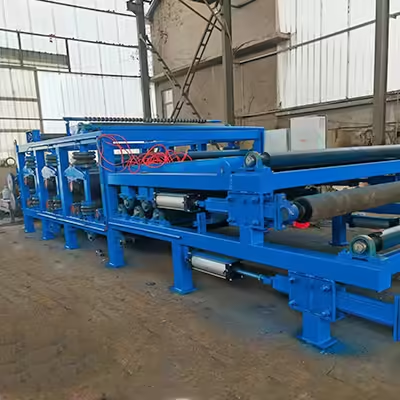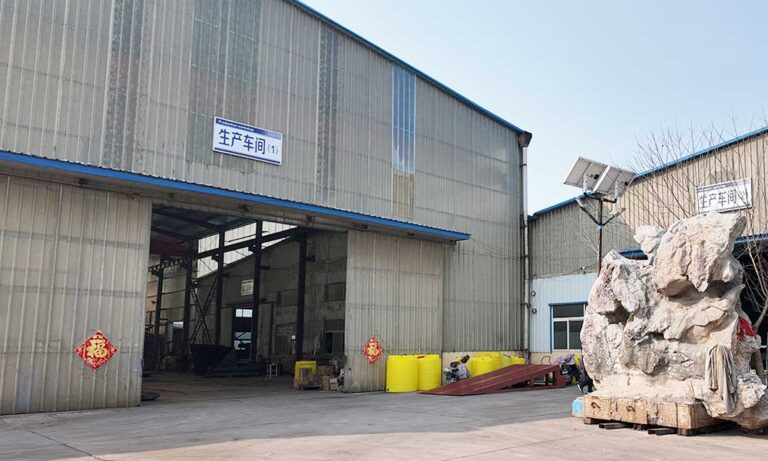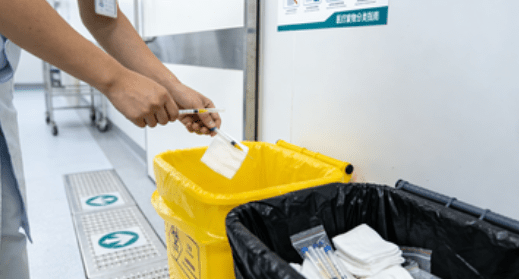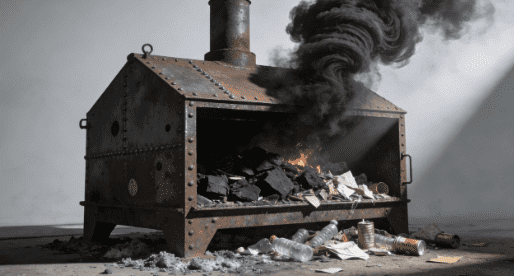Welcome to My Blog! 🌟
I’m so glad you’re here! Before we jump into the exciting content, I’d love for you to connect with me on my social media platforms. It’s where I share extra insights, interact with our amazing community, and post regular updates. Here’s how you can join the conversation:
📘 Facebook: Follow me on Facebook for more updates
Now, let’s dive into the journey ahead. I hope you find everything here both engaging and valuable. Together, let’s explore, learn, and grow! 🚀
Table of Contents
Introduction

As China continues to lead in industrial manufacturing, the filter press sector is undergoing significant technological advancements. In 2025, these innovations are set to enhance efficiency, sustainability, and adaptability across various industries. This article explores six key trends shaping the future of filter press technology in China.
1. Automation and Smart Technology Integration in Filter Press China
The increasing integration of automation technologies is revolutionizing filter press China systems. Modern filter press China machines now commonly feature advanced control solutions such as Programmable Logic Controllers (PLCs) and user-friendly touchscreen interfaces. These tools enable operators to perform real-time monitoring, predictive maintenance, and fault diagnostics, thereby minimizing manual oversight and operational downtime.
This evolution aligns with the broader Industry 4.0 movement in China, where filter press China equipment is becoming increasingly connected through the Internet of Things (IoT). The incorporation of IoT enables enhanced data analytics for process optimization, helping manufacturers reduce waste and energy consumption while boosting productivity.
2. Growing Focus on Sustainability and Energy Efficiency in Filter Press China
In recent years, the global emphasis on environmental protection has pushed industries to adopt more sustainable practices, and filter press China technology is no exception. Strict environmental regulations imposed by the Chinese government, alongside increasing ecological awareness among manufacturers and consumers, have become pivotal drivers for innovation within the filter press China sector.
Manufacturers in China are now prioritizing the design and development of filter press systems that reduce energy consumption without compromising performance. Energy-efficient system designs are being implemented, incorporating technologies such as variable frequency drives (VFDs) to optimize motor speeds and reduce power usage during filtration cycles. Furthermore, innovations in hydraulic system design allow for better pressure management, reducing unnecessary energy expenditure.
Another important aspect is the use of sustainable and recyclable materials in the production of filter press China components. For example, filter plates and frames are increasingly being manufactured from advanced composites and biodegradable polymers, which not only maintain structural integrity but also reduce environmental impact once the equipment reaches the end of its service life.
Additionally, energy recovery systems are becoming more prevalent in modern filter press China setups. These systems capture excess heat or hydraulic pressure generated during filtration and recycle it back into the process or auxiliary operations, significantly lowering the total energy footprint. This integration is especially beneficial in large-scale industrial plants, where even small improvements in energy efficiency can translate into substantial cost savings and environmental benefits.
Biodegradable and eco-friendly filter media are gaining widespread adoption in the filter press China market as well. These filter media help reduce solid waste and are designed to decompose naturally without leaving harmful residues. Their use aligns perfectly with China’s green manufacturing policies and global trends toward more responsible industrial practices. Moreover, they respond to increasing demand from international clients who require equipment that meets stringent environmental and safety standards.
The focus on sustainability and energy efficiency in filter press China technology not only benefits the environment but also helps manufacturers reduce operational costs and comply with evolving regulations, giving them a competitive edge in both domestic and international markets.
3. Customization and Modular Design Advancements in Filter Press China

The filter press China industry serves a vast array of sectors, including mining, chemical processing, food and beverage, pharmaceuticals, and wastewater treatment. Each of these sectors has unique operational demands and filtration requirements. To address this diversity, customization has become a fundamental aspect of filter press China technology development.
Manufacturers in China are now offering highly modular filter press systems that allow for easy configuration and expansion. This modularity means that components such as filter plates, frames, hydraulic units, and control systems can be customized or upgraded individually according to the client’s specific process needs.
The scalability of modular filter press China equipment enables businesses to adjust filtration capacity as their production scales up or down, preventing costly over-investment or underperformance. For example, a mining operation might start with a basic filter press and later add additional filtration modules as production volume increases or regulations tighten.
Modular design also simplifies maintenance and repairs. Instead of taking an entire system offline, operators can service or replace individual modules with minimal disruption to ongoing operations. This capability is particularly valuable in critical industries such as chemical manufacturing, where downtime can lead to significant financial losses.
Additionally, customization extends beyond hardware to include software and control logic. Advanced programmable control units allow users to tailor filtration cycles, pressure settings, and automated cleaning protocols to maximize process efficiency and product quality.
The combination of modularity and customization in filter press China technology represents a strategic response to the complex and evolving needs of global industries, enhancing both flexibility and operational resilience.
4. Advanced Materials Enhancing Durability in Filter Press China Equipment
Material innovation is another critical trend driving filter press China technology forward. Traditional materials are being replaced or supplemented by high-strength polypropylene, stainless steel alloys, and fiber-reinforced composites that significantly improve durability and resistance to corrosion and abrasion.
These materials are essential for ensuring consistent filter press China performance in harsh environments involving corrosive chemicals, high temperatures, or abrasive slurries. The enhanced durability translates into longer service intervals, decreased downtime, and reduced lifecycle costs for end users.
5. Incorporation of Artificial Intelligence and Machine Learning in Filter Press China
Artificial Intelligence (AI) and Machine Learning (ML) technologies are making their way into filter press China systems, providing unprecedented predictive capabilities. By analyzing operational data, AI-driven algorithms can forecast equipment wear, detect anomalies, and optimize filtration cycles dynamically.
This proactive approach allows operators to schedule maintenance before failures occur, minimizing unexpected downtime and maximizing throughput. The adoption of AI and ML within filter press China technology is part of China’s strategic push towards smart manufacturing and Industry 4.0, enhancing competitiveness in global markets.
6. Expansion of Market Applications

While traditional sectors like mining and wastewater treatment remain major consumers of filter press china technology, emerging industries such as pharmaceuticals, food processing, and biotechnology are increasingly integrating these systems for precise solid-liquid separation.
This diversification is broadening the filter press China market and driving innovation tailored to the stringent quality and safety standards of these newer sectors. With steady growth expected, filter press China manufacturers are adapting their technologies to meet the specialized needs of these expanding markets.
Table: Comparison of Filter Press Technologies
| Feature | Traditional Filter Press | Automated Filter Press | Smart Filter Press |
|---|---|---|---|
| Automation Level | Manual | Semi-Automatic | Fully Automated |
| Energy Efficiency | Standard | Improved | High |
| Customization Options | Limited | Moderate | Extensive |
| Material Durability | Standard | Enhanced | Superior |
| Predictive Maintenance | Not Available | Optional | Integrated |
Conclusion
The filter press industry in China is experiencing a transformative phase in 2025, characterized by technological advancements that enhance efficiency, sustainability, and adaptability. Embracing these trends will enable industries to meet environmental standards, reduce operational costs, and improve overall performance. As China continues to innovate, the future of filter press technology looks promising, with ongoing developments poised to further revolutionize industrial processes.
FAQ
Q1: What industries are adopting filter press technology in China?
A1: Industries such as mining, chemicals, wastewater treatment, pharmaceuticals, food processing, and biotechnology are increasingly adopting filter press technology for solid-liquid separation processes.
Q2: How does automation benefit filter press systems?
A2: Automation reduces manual intervention, enhances operational efficiency, enables real-time monitoring, and facilitates predictive maintenance, leading to cost savings and improved performance.
Q3: What materials are commonly used in modern filter presses?
A3: Modern filter presses utilize materials like high-strength polypropylene, stainless steel, and fiber-reinforced plastics to enhance durability and resistance to harsh operating conditions.
Q4: What role does AI play in filter press technology?
A4: AI analyzes operational data to predict equipment failures, optimize filtration cycles, and improve overall system efficiency, contributing to the advancement of smart manufacturing.
Q5: What is the market outlook for filter press technology in China?
A5: The filter press market in China is projected to experience steady growth, driven by technological advancements, increased industrial demand, and the adoption of sustainable practices.






